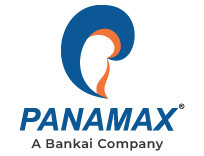Bitcoin is no alien concept to the global money market right now, yet it has managed to remain elusive to a big population. With the digital currency gaining momentum, this cryptocurrency is being discussed amidst certain segments of the society.
For the novices, here’s some background on what is a cryptocurrency – this is a form of digital currency which involves encryption techniques regulating the generation of units of currency and verifying the transfer of funds, operating independently without any governing bank. Bitcoin was the first to be declared a decentralised cryptocurrency in 2009. Currently, several cryptocurrencies are available in the market. These are frequently called altcoins, a combination of bitcoin alternative. Other such cryptocurrencies are Ethereum, Dash etc.
Coming to the history of Bitcoin, a man named Satoshi Nakamoto began working on the Bitcoin concept in 2007. The concept was published in the year 2008 and released it as open-source software in 2009. The research paper submitted can be read here. While he is on record living in Japan, it is alleged that Nakamoto may be a pseudonym for a group of people than just one.
How it works?
Bitcoin’s system is a direct peer-to-peer transfer with no requirement of an intermediary. The universe of Bitcoin is built on a system called Blockchain, making it a decentralised database or more popularly, distributed ledger. Any transaction carried out on Bitcoin is recorded on the Blockchain’s replicated database network and this can be visible to anyone within the network.
To explain the concept of buying and selling of Bitcoins, whenever a transaction is initiated by a user, it is cryptographically encoded and grouped in a block that contains all other transactions that happened in past 10 minutes. Post this, the Miners (Bitcoin users with computing skills) compete among each other to validate the transactions by solving a code problem. The miner who is able to solve the problem first and validates this block, receives a ‘reward’. Reward is a Bitcoin in this scenario. The validated block is then timestamped and added to a chain of other blocks in chronological order. This chain is constantly updated and the history of ledger is maintained. Every member is thus able to see who owns how much at any point.
How and where to use?
There are several exchanges for Bitcoin transaction in every country, so plenty of options to choose from based on the facilities offered by the platform. Make sure that Bitcoin’s rates fluctuates just like stock market or gold, one must therefore keep a track of it before planning to buy some. Bitcoins can be bought from websites like Coinbase, SpectroCoin, Bitcoin, Zebpay etc.
Since Bitcoin is still in its nascent stage, not many companies accept it currently. However you can see the list of companies that accept bitcoin here.
Why Bitcoin?
- Lower transaction fee involved – when making payments through bitcoins. This saves atleast 1-5% cost of the retailers, depending on the payment mode they currently use.
- Instant transaction – When the world is becoming so closely knit, it is imperative that the financial transaction are closed in the shortest possible time. Bitcoin ensures just that hence saving time and effort for its users.
- No third party involvement – Bitcoin safeguards direct Peer to Peer transaction cutting down on any brokerage and security concerns during the transaction process.
- Just like the digital payment modes, Bitcoin is favoured due to the ease of access. All you need is an internet enabled mobile phone and you are good to go.
- With the algorithm that Bitcoin is based on, there is least chance of counterfeiting hence ensuring complete privacy of transaction.
Challenges
- Acceptance – Not many outlets accept bitcoins. Since the concept is in its nascent stage, one cannot know at this point if there occurs a flaw in the system.
- Frequent fluctuation in valuation – The price of Bitcoin undergoes massive fluctuation. It was valued at $1 in January 2011 and is a whopping $4363 as I write this in 2017! This tends to show the unreliability of the currency.
- Still evolving – To make Bitcoin more secure and accessible, new features, tools, and services are currently being developed. This clearly means there is still time before Bitcoin can come to its full potential.
- Uncertainty in regulatory compliance – Presently there are certain norms for Bitcoin trading in different countries which might further undergo government intervention.
- No centralised banking – A central bank manages fractional reserve lending that allows a national economy to expand. The supply of Bitcoin is limited by algorithm, therefore it is difficult for an economy running on Bitcoin to accommodate a larger population or natural resource base.
What should you do?
I would say what you would have heard before buying mutual funds! Buy at your own risk! When putting in your money on Bitcoin, make sure you researched well and are ready for the lows as much as you are for the highs. It is important that only a calculated risk is taken instead of using it as another medium of investment.
Panamax’s mobile financial solution MobiFin is leaping towards establishing a link with Bitcoin’s blockchain to facilitate Bitcoin transaction. This will help the clients with international money transfers through MobiFin’s reliable payment gateway while making profits through conversion rates between currencies. We aim to expand our services to include other cryptocurrencies along with Bitcoin in the near future.


















